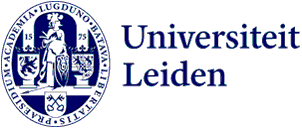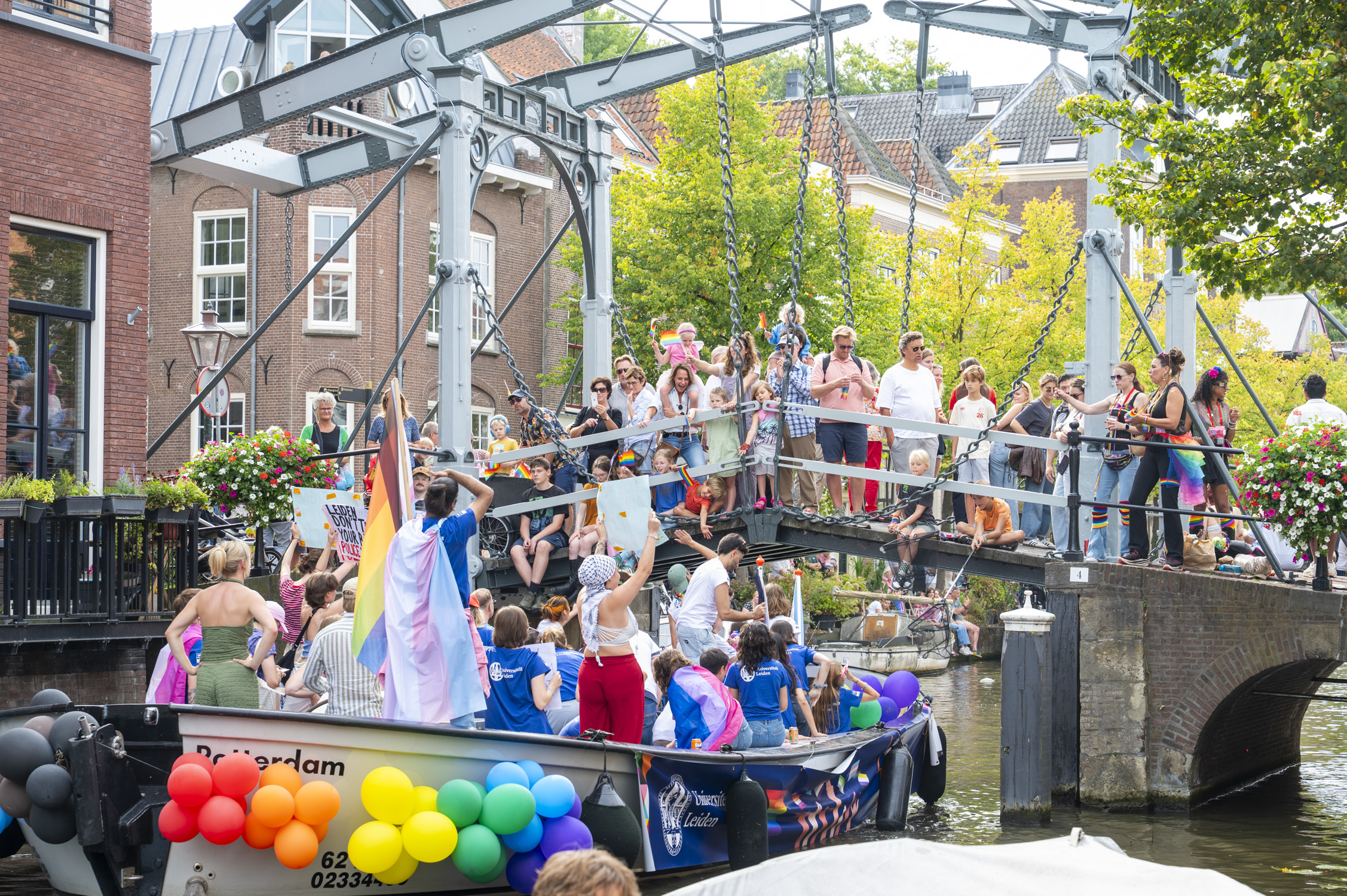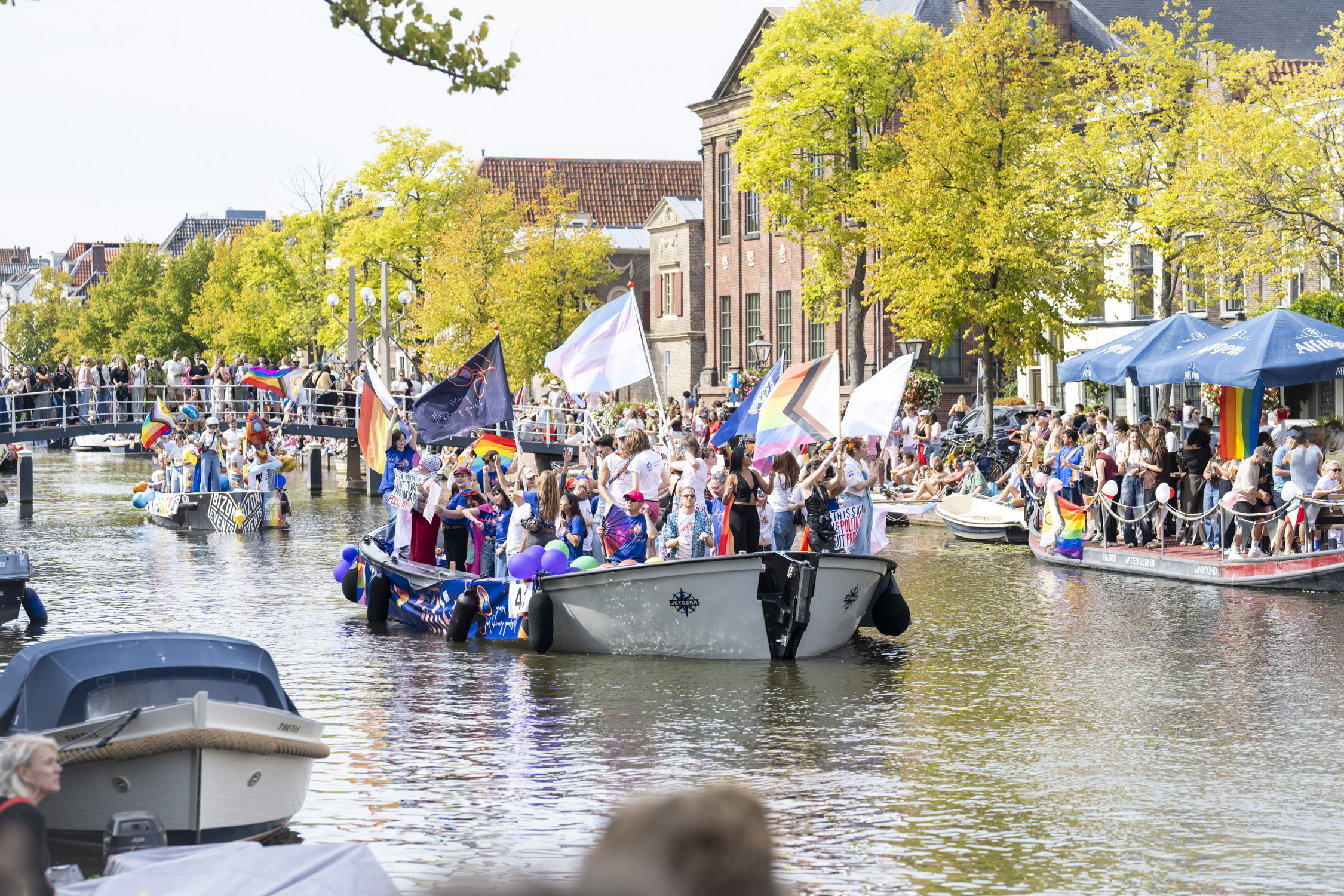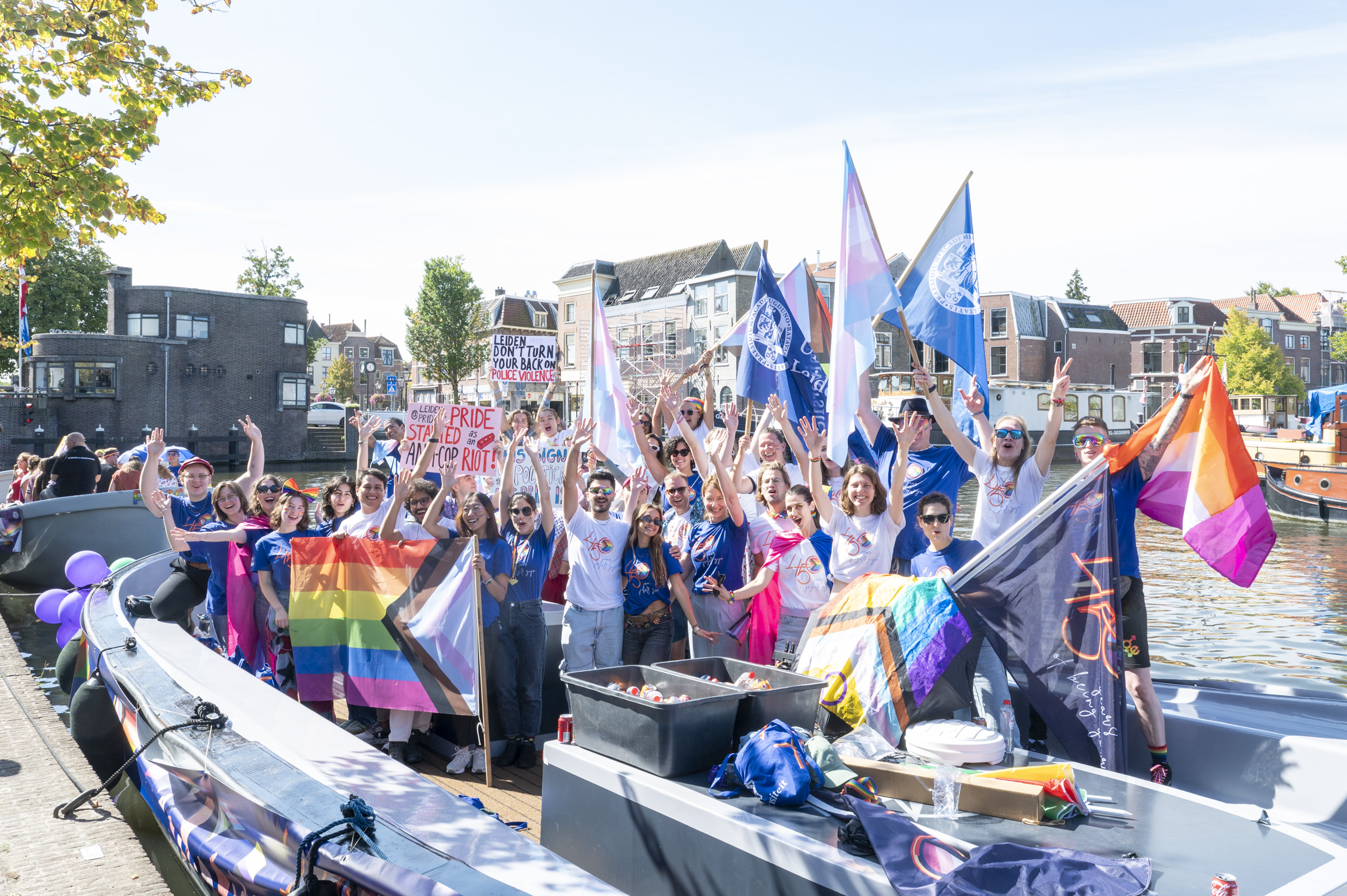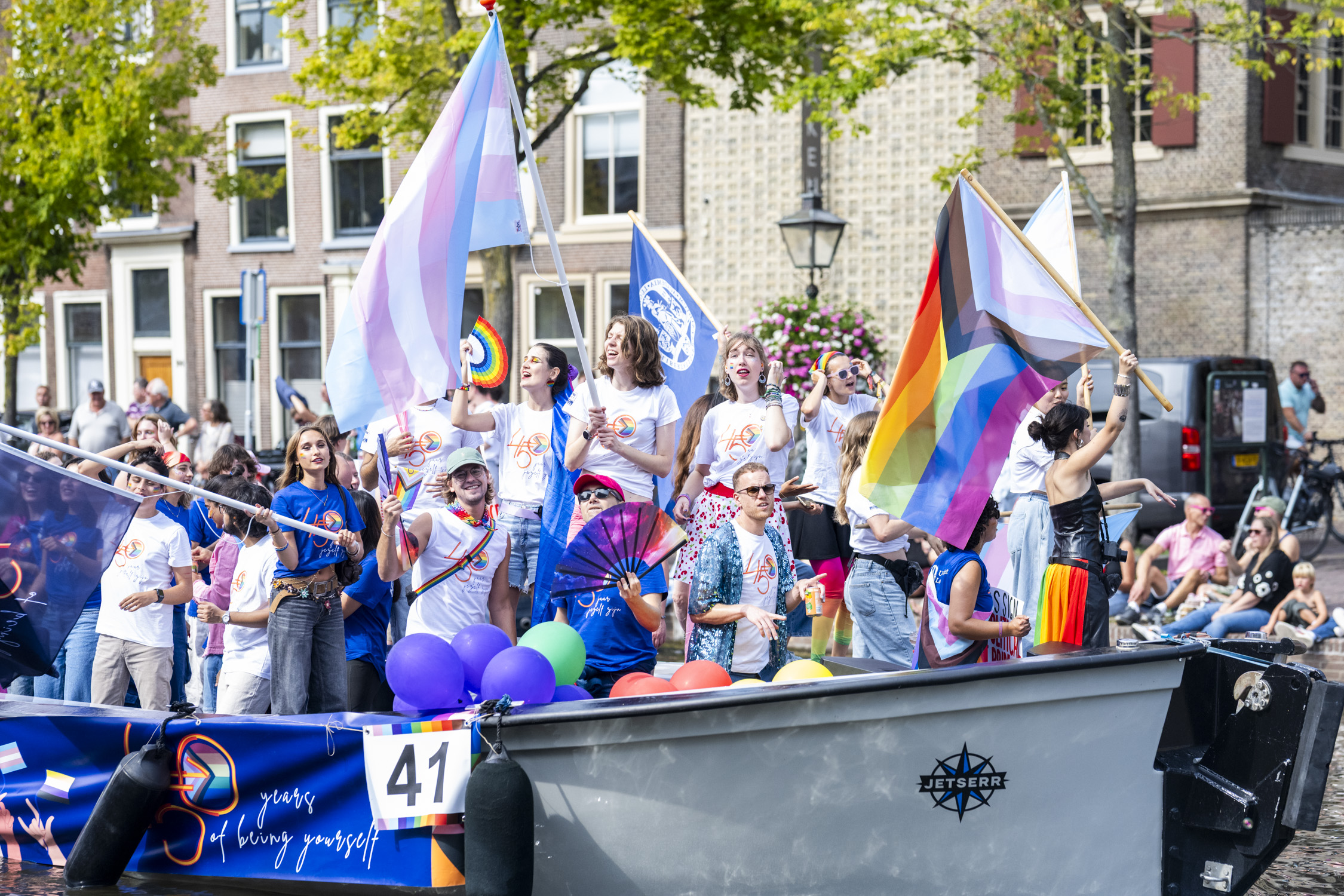
Pride is a celebration, but also a fight for visibility
‘Be yourself. Be as gay, queer, trans as you can and show the world you exist.’ These rousing words from Looi van Kessel marked the start of the third Pride Leiden for the university boat, with the theme: ‘450 years of being yourself’.
The message is on flags and T-shirts. And being yourself is what the students and staff on board are doing. They come from all corners of the world, and many cannot be themselves at home. But in Leiden they can. ‘The university gives me the chance not just to study but to discover and express my identity’, says one student. Still, some would prefer not to be photographed or quoted – a reminder that when it comes to being yourself, we’re not there yet.
But on the boat, surrounded by fluttering flags, the pounding bass of the DJ and colourful balloons that don’t always survive passing under the bridges, everyone is lost in the moment. On the prow, people dance for hours on end; at the stern, cheers erupt as they pass canal-side performances.
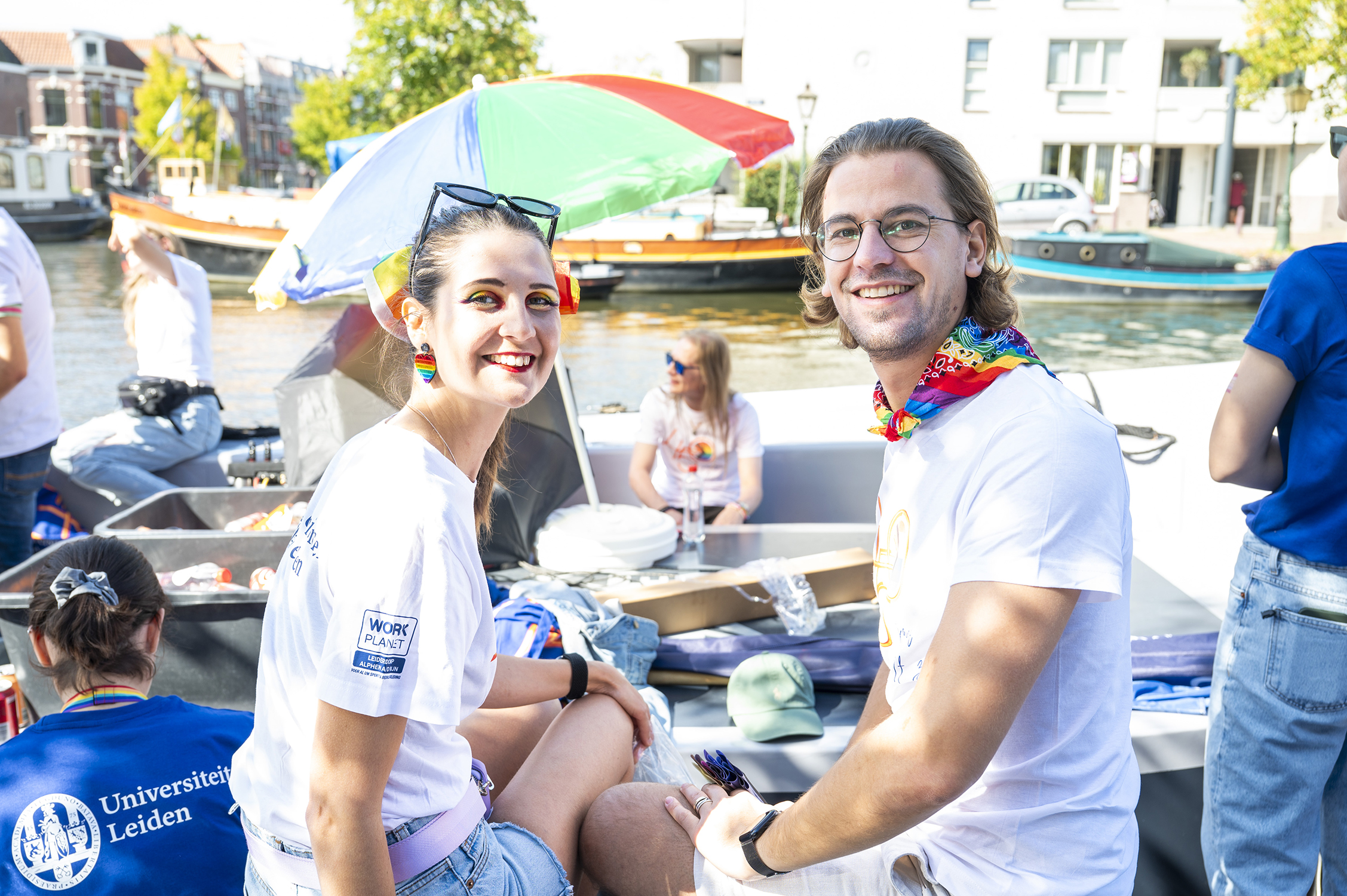
Rob van Wijk
Assistant professor, LACDR (right)
‘As a lecturer, I think it’s important to show that everyone is entitled to feel represented at the university. I want to be the role model I didn’t have a student. I’m doing that here on the Pride boat and I also do it in my lectures. In my field of drug development, I focus on diversity in clinical studies, where many groups are still underrepresented.’
Pinkwashing
At the start of last year’s Pride, Dean Sarah de Rijcke reminded everyone that Pride is more than a party. ‘We recognise that Pride is rooted in protest and that institutional change is still needed.’
That message remains just as relevant in 2025, but Van Kessel asks those on the boat not to display the protest signs that upset the organisers of Leiden Pride last year, particularly those criticising police actions during the first Pride in 2023.
For a good while, his request is respected. But as the boat nears the jury and the TV cameras, placards appear. Someone cuts the music and a student uses the silence to shout their discontent across the water with a megaphone. The pain from the 2023 police response still lingers as does the feeling, voiced by the demonstrators, that companies are being showcased that have joined the parade not out of genuine support but to pinkwash or queerwash their brand.
For a moment, the skipper and organisers hesitate: should they keep going or withdraw? But at the next bridge, the music blares out again and the party resumes – though not quite as it was before.
Understanding
It’s a difficult moment for Looi van Kessel. He understands that some people were not happy with the protest, but says he saw people giving the thumbs up from the canal banks. ‘It’s tricky. The organisers felt last year was too political and too focused on police violence. We spoke with the students and thought we’d reached a compromise, but clearly not everyone agreed. And if I’m honest, I understand. The demonstrators didn’t break any laws. I think they’re actually within their rights. This is freedom of speech. And Pride is political.’

Laura Zwep
Assistant professor of maths (right)
‘I love the dancing and celebration - that was clear today. But Pride is more than that. This is my second time on the university boat and the first time my mum’s come to watch. She was moved, and so was I because it is moving. When we came out from under the bridge, I saw a girl sitting with a transgender flag and I thought: That’s why we’re here. We want to make the world a better place so she can be yourself too.’
The reason we have something to celebrate
That is the point that master’s student Agnese, one of the demonstrators, is trying to make. ‘Leiden Pride’s decision to ban political expressions undermines the spirit of pride: protest. We’re disappointed in university representatives who think we’re “ruining” pride. As students and staff of Leiden University, we know that queer freedom isn’t won by capitulating to business interests in exchange for a bit of visibility. Making Pride apolitical erases the very reason we have something to celebrate.’
Back on dry land, Van Kessel says it’s too soon to draw conclusions, but he will definitely consider his role.* ‘I’m more or less forced to play police officer and that’s not what I want. As a lecturer, I teach my students to speak out against injustice, and that they shouldn’t be afraid to express their opinions. So it feels wrong to tell them they can’t do that now.’
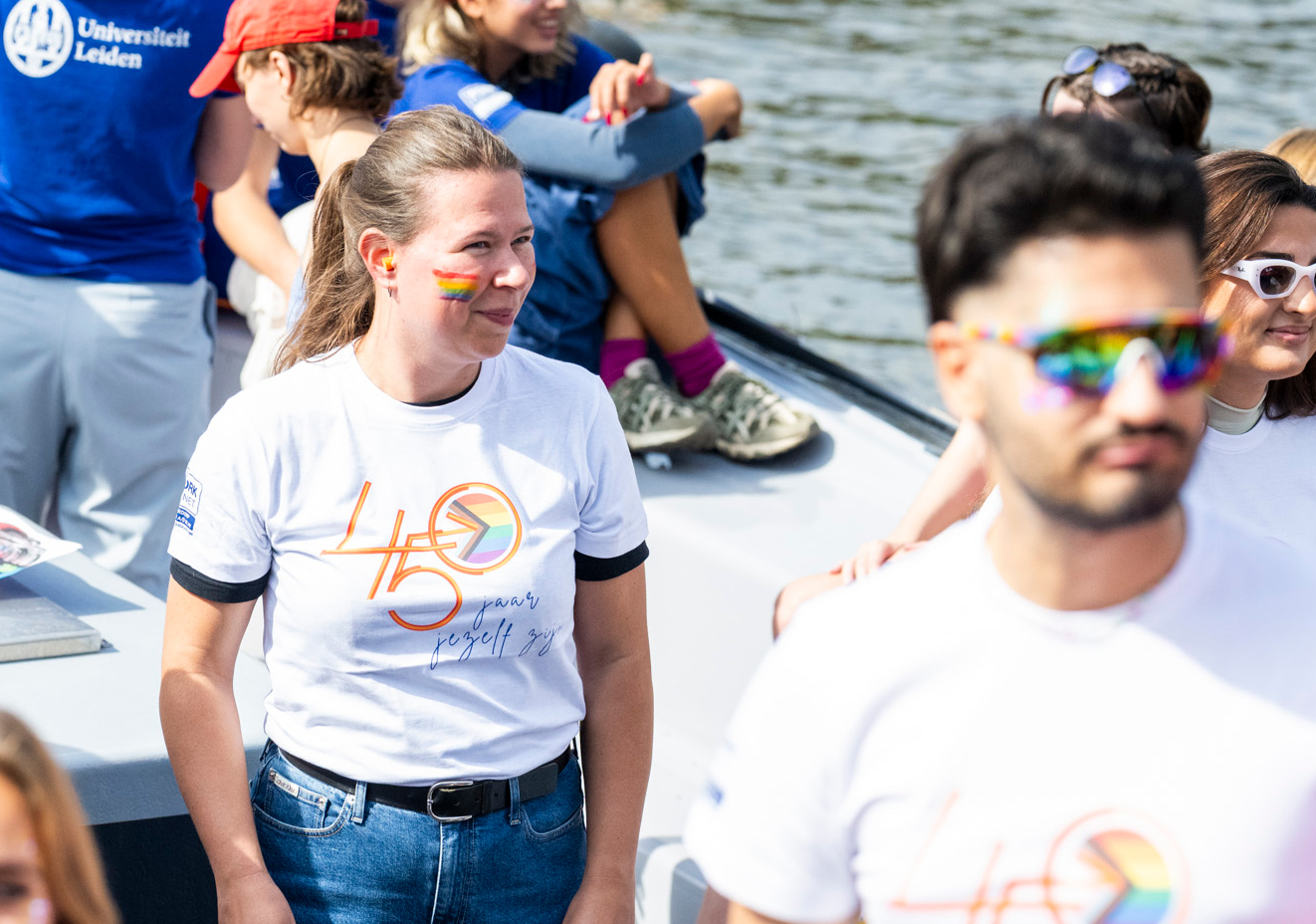
Renske Janssen
Postdoctoral researcher in classics and ancient history (left)
‘I’ve been to other Prides but this is my first one in Leiden. It used to be just Amsterdam but now you see it in more places, which is good. I didn’t hesitate when I was given the chance to join the boat. It’s good that not only students but also teaching and other staff are willing to be seen – especially now when being yourself isn’t something you can take for granted. It shows that being yourself is supported throughout the university.’
* Update: Van Kessel has resigned as Chair of the Leiden University LGBT+ Network.
